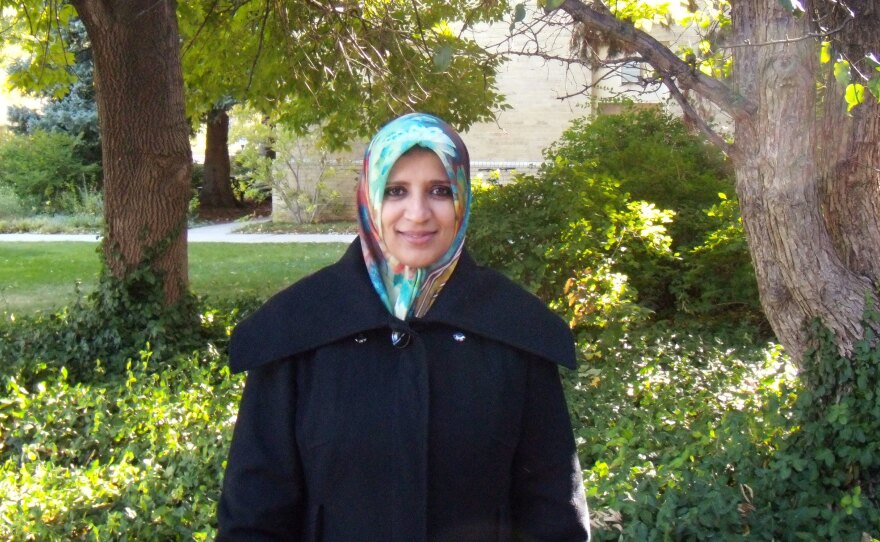The scientific community has been roiled by the Trump travel ban.
Like tens of thousands of residents of the seven Muslim majority countries, scientists have been stranded — cut off from their labs, worried they won't be able to attend upcoming conferences. And even though the ban has been temporarily reversed by a court order, they are uncertain about what the future holds — and the implications for their work.
Consider the case of Ph.D. candidate Hanan Isweiri. She left her lab at Colorado State University to fly home to Libya after the death of her father.
She was expected back in Colorado 10 days ago. But on her return trip to the U.S., she was stopped while trying to catch a connecting flight in Jordan.
When she reached the gate, she and her 1-year-old son, Tameem, were told they couldn't board the plane due to the new U.S. travel restrictions. Hanan has a valid F-1 visa, and her son is a United States citizen. When she called officials at Colorado State University, they told her to stay put.
"They asked me to not go anywhere until they got this exception, or something, for me," Isweiri told NPR last Thursday.
A lot has changed since then. Following the court order to reverse the ban, the State Department and other agencies began accepting visas like Isweiri's. Late Saturday night, she made it back into the U.S.
Even with the temporary relief, the ban has hurt the scientific community, says Rush Holt, a physicist and a former member of Congress who now heads the American Association for the Advancement of Science. His organization will hold its annual meeting, in Boston, later this month, and the uncertainty is taking its toll.
"The head of the world academy of sciences, which is headquartered in Trieste, Italy, sent a letter saying he is canceling his plans because he is Sudanese and didn't expect to be able to travel," Holt explains.
He says the freedom to communicate and collaborate with people around the world are fundamental principles for science.
"If you want science to thrive — and you'd better want science to thrive, because that benefits society in so many ways — you really have to defend these principles," Holt says.
Even scientists from the seven targeted countries who are still in the United States have been negatively affected. Maryam Zahedian, a grad student in chemistry at Indiana University in Bloomington, is originally from Iran. She worries this is the start of something terrible.
"All this news, it just makes us so nervous, I cannot even focus for like 30 minutes," Zahedian says. "Doing my research, I will go back and check the news, check the Facebook to see if there is any new thing. I don't want to stay longer here if it's going to be like this."
It's too early to say whether the ban will return. Opponents say it's unconstitutional. President Trump has vowed to see it reinstated. In the meantime, scientists, and many others, feel left in limbo.
Copyright 2017 NPR. To see more, visit http://www.npr.org/.






